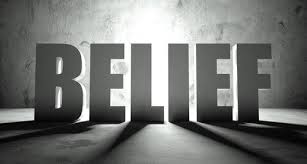Keith Reich posted on the subject of belief within Christianity. He is worth quoting at length:
Many see Christianity as a “belief system.” That is, Christianity is about believing the right stuff. And belief used in this sense is defined as giving your mental agreement to a set of statements., such as, “Jesus Christ died for our sins,” or “Jesus Christ is fully God and fully man, of one substance (homoousios) with the father.” To believe these statements, for much of the modern church, means to agree in your mind that these statements are facts.
This is how I grew up as a Christian. In the early phases, my Christianity was seen as accumulating right (orthodox) beliefs about God and Christ. This manifested itself in reading the Bible, attending church, youth group, conferences, and the like, and acquiring knowledge. Later it moved on to reading books which explained right beliefs. This all culminated in reading systematic theology books to acquire knowledge of a compendium of orthodox Christian doctrines, which were propositions calling for mental agreement.
But what do you do after you have acquired all of these beliefs and given your mental assent to them? Well, there’s not much left to do. You can digest a massive systematic theology in a finite amount of time, and then what do you do? Well, I found that the only avenue left open, if my faith was not to become stale, was to debate. Find people who disagree with my mental propositions, and show them the error of their ways. I think that this is what much of conservative evangelical Christianity engages in: finding the right (orthodox) beliefs, and then searching out those who disagree with them, with the purpose of correcting them, or (more common unfortunately), with the purpose of punishing them for their stubborn doubts. This is why I believe that evangelicalism has become so ugly in the public arena. The goal is to debate and punish those who won’t put a mental checkmark by all of the right (orthodox) beliefs as determined by the evangelicals.
Is this a good way to go? Is this what Christianity should be?













